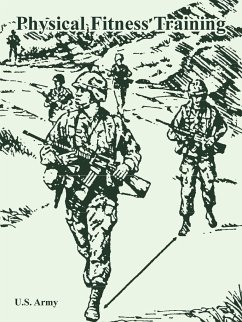On 5 July 1950, U.S. troops, who were unprepared for the physical demands of war, were sent to battle. The early days of the Korean war were nothing short of disastrous, as U.S. soldiers were routed by a poorly equipped, but well-trained, North Korean People's Army. As American soldiers withdrew, they left behind wounded comrades and valuable equipment their training had not adequately prepared them to carry heavy loads. The costly lessons learned by Task Force Smith in Korea are as important today as ever. If we fail to prepare our soldiers for their physically demanding wartime tasks, we are guilty of paying lip service to the principle of "Train as you fight." Our physical training programs must do more for our soldiers than just get them ready for the semiannual Army Physical Fitness Test (APFT). This book is directed at leaders who plan and conduct physical fitness training. It provides guidelines for developing programs which will improve and maintain physical fitness levels for all Army personnel. These programs will help leaders prepare their soldiers to meet the physical demands of war. This manual can also be used as a source book by all soldiers. The benefits to be derived from a good physical fitness program are many. It can reduce the number of soldiers on profile and sick call, invigorate training, and enhance productivity and mental alertness. A good physical fitness program also promotes team cohesion and combat survivability. It will improve soldiers' combat readiness.
Hinweis: Dieser Artikel kann nur an eine deutsche Lieferadresse ausgeliefert werden.
Hinweis: Dieser Artikel kann nur an eine deutsche Lieferadresse ausgeliefert werden.








